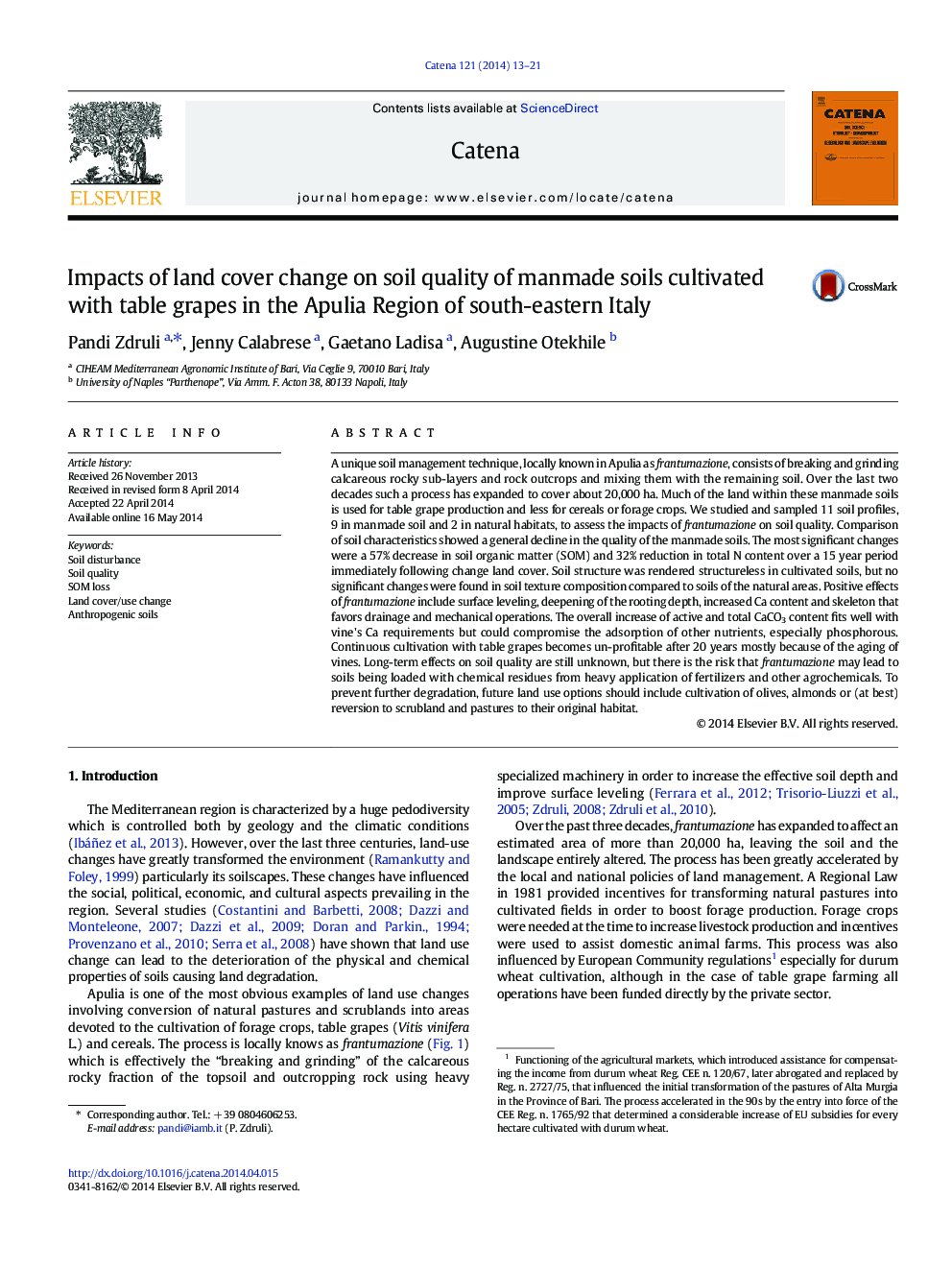| کد مقاله | کد نشریه | سال انتشار | مقاله انگلیسی | نسخه تمام متن |
|---|---|---|---|---|
| 4571298 | 1629231 | 2014 | 9 صفحه PDF | دانلود رایگان |

• 20,000 ha of manmade soils in Apulia requires solutions for long their term use.
• 30,000 €/ha investment to convert 1 ha of scrubland to table grape cultivation
• 57% SOM loss in only 15 years
• 32% reduction in total N in 15 years
• Improvement of soil fertility through remediation techniques
A unique soil management technique, locally known in Apulia as frantumazione, consists of breaking and grinding calcareous rocky sub-layers and rock outcrops and mixing them with the remaining soil. Over the last two decades such a process has expanded to cover about 20,000 ha. Much of the land within these manmade soils is used for table grape production and less for cereals or forage crops. We studied and sampled 11 soil profiles, 9 in manmade soil and 2 in natural habitats, to assess the impacts of frantumazione on soil quality. Comparison of soil characteristics showed a general decline in the quality of the manmade soils. The most significant changes were a 57% decrease in soil organic matter (SOM) and 32% reduction in total N content over a 15 year period immediately following change land cover. Soil structure was rendered structureless in cultivated soils, but no significant changes were found in soil texture composition compared to soils of the natural areas. Positive effects of frantumazione include surface leveling, deepening of the rooting depth, increased Ca content and skeleton that favors drainage and mechanical operations. The overall increase of active and total CaCO3 content fits well with vine's Ca requirements but could compromise the adsorption of other nutrients, especially phosphorous. Continuous cultivation with table grapes becomes un-profitable after 20 years mostly because of the aging of vines. Long-term effects on soil quality are still unknown, but there is the risk that frantumazione may lead to soils being loaded with chemical residues from heavy application of fertilizers and other agrochemicals. To prevent further degradation, future land use options should include cultivation of olives, almonds or (at best) reversion to scrubland and pastures to their original habitat.
Journal: CATENA - Volume 121, October 2014, Pages 13–21